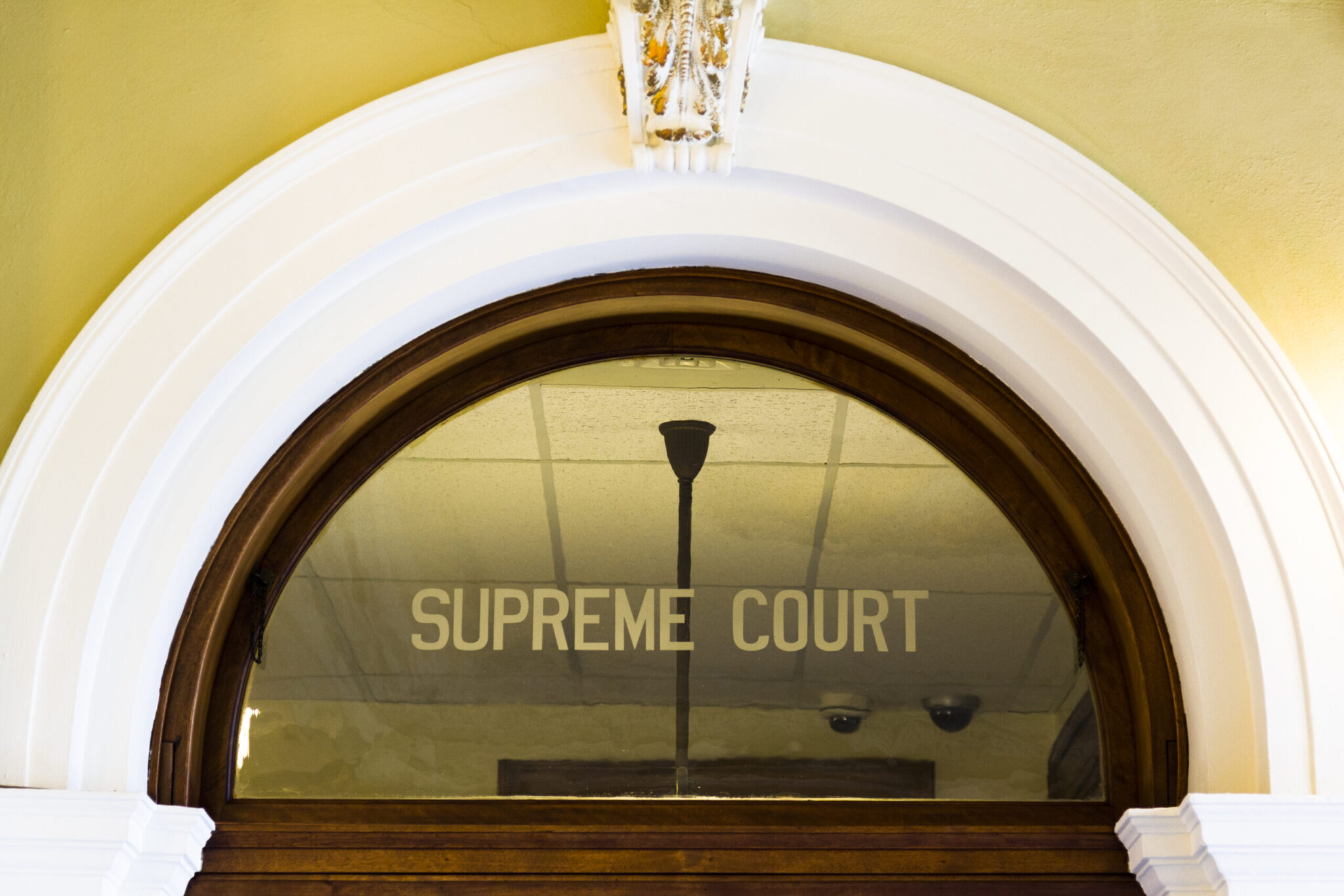
John Hult, South Dakota Searchlight
A state constitutional amendment on victims’ rights approved by voters in 2016 is not absolute, the South Dakota Supreme Court concluded this week.
The justices decided that South Dakota’s Marsy’s Law amendment does not trump a defendant’s right to a fair trial. Their decision came Thursday in the case of South Dakota vs. Waldner.
Even so, the justices shot down a lower court’s ruling that had granted two defendants access to an alleged sexual assault victim’s diaries. Marsy’s Law may not be absolute, the justices wrote, but it does grant victims the ability to appeal decisions that affect their privacy.
Several states have passed versions of Marsy’s Law, billed as a crime victim’s bill of rights and named after Marsy Nicholas, who was murdered by an ex-boyfriend in 1983.
Her brother, California billionaire and Broadcom co-founder Henry Nicholas, has financially backed multiple state-level efforts to institute the provisions since California voters backed a version of Marsy’s Law in 2008. Nicholas funded the ballot initiative in South Dakota, as well.
Opponents of the initiative at the time decried the wording of the South Dakota proposal. They worried South Dakota’s version lacked provisions in other states to define the limits of a victim’s right to privacy, and how that right could be balanced with a defendant’s right to a fair trial. Ohio, for example, specifies that its version of Marsy’s Law does not outweigh a defendant’s Sixth Amendment rights to a fair and speedy trial.
The law in South Dakota has been used since its passage to shield the names of police in officer-involved shootings from the public, and led the Sioux Falls Police Department to remove the addresses of criminal incidents from publicly available police logs.
Case speaks to limits on victim rights
The Waldner decision doesn’t address every issue of concern with Marsy’s Law, but it does clear up some of the questions created by the broad language of its South Dakota iteration.
In the Waldner decision, the South Dakota Supreme Court concluded that Marsy’s Law did afford the victim the right to appeal a decision granting the alleged perpetrators access to diary entries, because the decision affected the victim’s protected right to privacy.
The victim had argued that the protections afforded through Marsy’s Law were absolute. The justices concluded that they are not.
“To read a victim’s right of privacy under the State constitution as absolute, or superior to the rights of a defendant, would at some point infringe upon a defendant’s federal due process right to defend against a charge,” Justice Patricia DeVaney wrote in the ruling, which was affirmed by the court’s other four justices.
The decision to overturn the lower court’s ruling and deny access to the diaries was based on the defendant’s overly broad request for information.
The defendants were charged with multiple counts of sexual assault in 2021 for incidents that allegedly took place in late 2019 into early 2020.
The victim and defendants are Hutterites — members of a communal branch of the Anabaptist faith — and the victim was moved to a separate colony after disclosing the alleged abuse. She shared her story and diary entries with confidants at that colony, who in turn shared the information with law enforcement.
The pages describing the assaults, as well as forensic interviews and police reports, were given to the defendants.
The defendants later requested “any and all disciplinary records from the colony” on the victim, as well as any diary entries written between 2010 and the present. The victim’s writings, the defendants argued, might speak to the victim’s mental state and credibility.
A Brule County judge ruled that the victim must produce those documents. The victim appealed. In their arguments to the state Supreme Court, the defendants said the victim did not follow proper procedure for asserting Marsy’s Law rights, and that the victim had waived those rights by once stating they didn’t care who read the diary entries.
Justices: Information request not specific enough
That statement wasn’t enough, the Waldner ruling says. It came in response to a question about whether the mother of one of the men who’d helped the victim work with law enforcement could see the entries the victim hadn’t shared with police. That alone, DeVaney wrote, was not enough to constitute a voluntary, knowing and intelligent waiver of privacy rights.
The lack of a waiver wouldn’t be enough to shield the entries from a defendant, though. The issue with the Waldner request, the ruling says, is that it failed to meet the standards for admissibility often used by the justices in South Dakota. The standards are defined by a U.S. Supreme Court case involving former President Richard Nixon, who unsuccessfully tried to shield presidential audio recordings from release.
Under what have come to be known as the “Nixon factors,” a request for evidence that would otherwise be shielded from a defendant’s view for reasons of confidentiality or privacy can be granted if the information requested is relevant, admissible and specific.
In the Waldner case, DeVaney wrote, the request didn’t clear the bar.
The judge in Brule County had ruled that the defendants’ right to a fair trial was more important than the victim’s right to privacy, but he hadn’t applied the Nixon factors. The state Supreme Court did, and concluded that the diary entry request was not specific enough to warrant disclosure to the defendants.
Seeking “all” entries, the ruling says, constitutes a “fishing expedition.”
Attorney General Marty Jackley, whose office argued the case on the victim’s behalf, praised the ruling for its recognition of a victim’s privacy rights.
“The Supreme Court has reaffirmed that victims have rights in South Dakota including their privacy,” Jackley said in a prepared statement.
